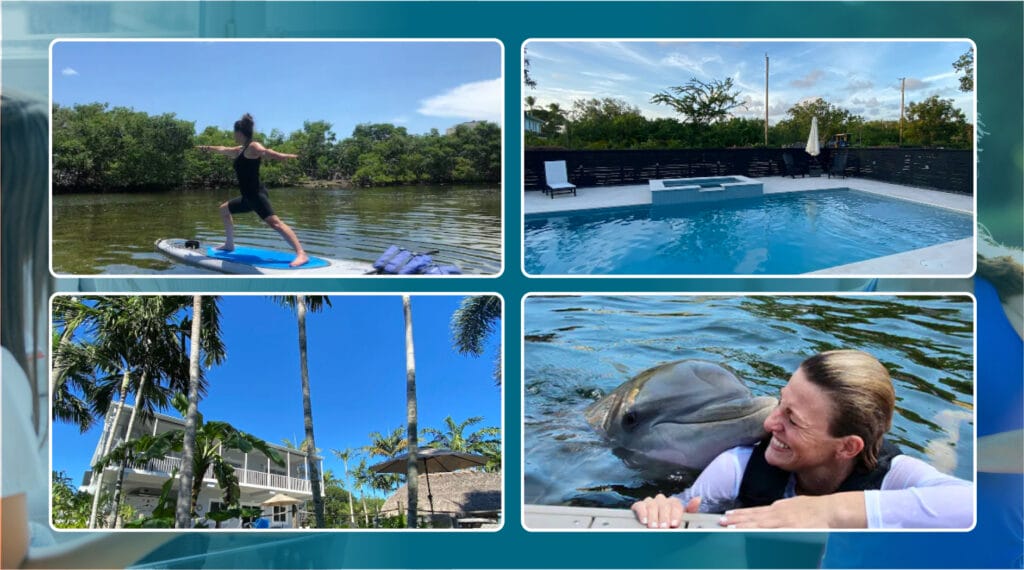Recovering from narcissistic abuse often carries the heavy expectation of forgiveness. It’s commonly believed that forgiving your abuser is crucial for healing.
However, this might not be the best or only path to recovery.
We’ll challenge the notion that forgiveness is necessary, exploring why, sometimes, it might be healthier to choose another route for your mental well-being and self-respect.

The Traditional Role of Forgiveness in Recovery
Forgiveness has long been regarded as a psychological cornerstone, often touted as the key to emotional freedom and overcoming past traumas.
The prevailing thought is that by forgiving, you release yourself from anger and resentment, supposedly leading to inner peace. But is this always the case?
For many, forgiveness is an ongoing process, not a one-time act, and it can sometimes feel forced, especially when dealing with deep-seated emotional wounds caused by narcissistic abuse.
The Burden of Forgiveness as a Moral Obligation
Beyond being a healing tool, forgiveness is often viewed as a moral duty. Cultural narratives and societal expectations suggest that forgiving makes you a better, more empathetic person. For victims of narcissistic abuse, this pressure can be overwhelming and unrealistic.
The demand to forgive can sometimes feel like a dismissal of the abuse endured, diminishing the victim’s experience and the severity of the narcissist’s actions.
Challenging the Norm: The Case Against Mandatory Forgiveness
Critics of mandatory forgiveness argue that it may not always be appropriate, particularly in cases of severe or chronic abuse. Enforced forgiveness can further victimize the abused, underplaying the abuser’s responsibility and adding undue emotional strain on the victim.
Research suggests that there are various healthy pathways to recovery that don’t include forgiveness, affirming that healing can take multiple forms based on individual circumstances.

Reasons Why Forgiveness May Not Be Necessary
Establishing Boundaries
Forgiving someone who has deeply hurt you, like a narcissistic abuser, often feels counterintuitive. Maintaining strong personal boundaries can often be more beneficial than offering forgiveness.
This approach focuses on self-protection and ensuring that you are not exposed to further harm, which is crucial for anyone coming out of a manipulative relationship.
Prioritizing Self-Preservation
Healing should focus on one’s own emotional and mental well-being. Sometimes, choosing not to forgive is exactly what you need to prioritize your health and start rebuilding a life free from abuse.
The emphasis here is on recovery that centers the survivor’s needs and timelines, not on fulfilling an arbitrary societal expectation of forgiveness.
Debunking Forgiveness Myths
Forgiving your abuser doesn’t mean you forget the abuse occurred or condone their actions. Many people think that forgiveness is a step towards reconciliation, but it doesn’t have to be.
Understanding that forgiveness is not synonymous with forgetting or accepting the abuse can free many from the unnecessary burden of trying to feel something they simply don’t.

Alternative Healing Pathways Offered by Kinder in the Keys
At Kinder in the Keys, healing from narcissistic abuse doesn’t hinge solely on forgiveness. Our approach to therapy for narcissistic abuse integrates a variety of methods to promote holistic recovery, focusing on the mind, body, and spirit.
Self-Care and Professional Therapy
Kinder in the Keys emphasizes a well-rounded therapeutic approach that includes trauma-focused therapy, cognitive-behavioral therapy (CBT), and dialectical behavior therapy (DBT).
These modalities help survivors process their trauma, learn healthier coping mechanisms, and develop emotional regulation skills. The serene location in the Florida Keys provides a calming backdrop, enhancing the therapeutic process.
Building Support Systems
We foster this through group therapy and wellness activities that build networks of support among survivors, helping them feel understood and less isolated in their experiences.
Empowering Personal Growth
We also encourage personal development through holistic therapies such as art and music therapy, and unique treatments like dolphin swims.
These activities help survivors reclaim their sense of self and rebuild confidence, promoting healing beyond traditional talk therapy.
Your Recovery, Your Choice: Embracing Healing Without Forgiveness
By exploring alternative healing pathways, survivors can find solace in methods that prioritize their individual needs over conventional recovery scripts.
In the end, your healing process should empower you, leaving you with a renewed sense of self, without the necessity of forgiving those who have wronged you.
